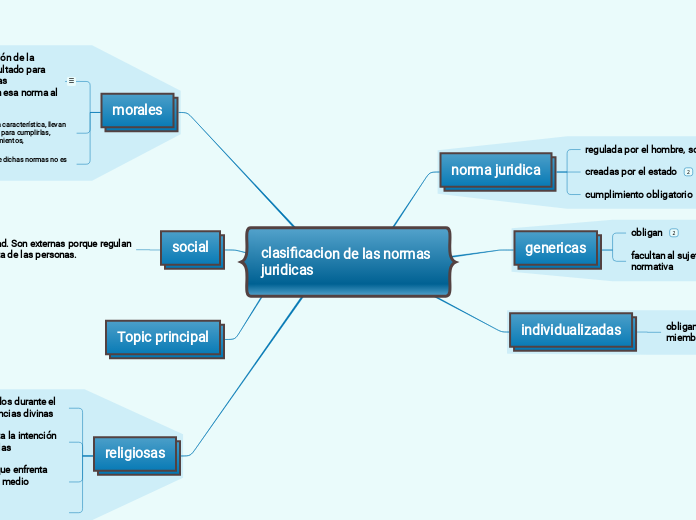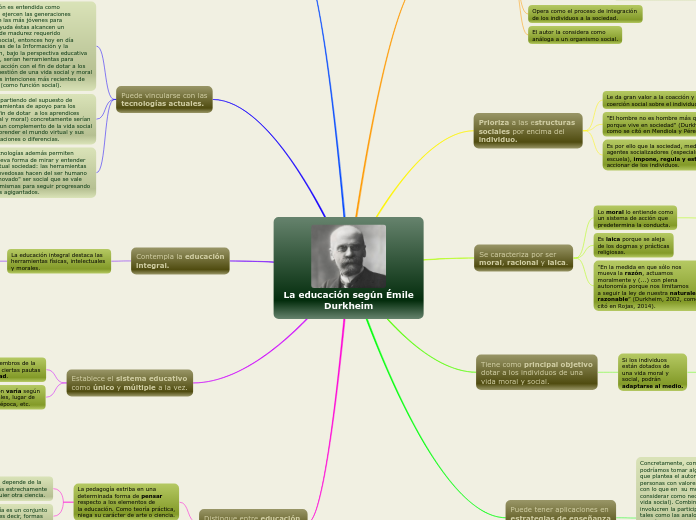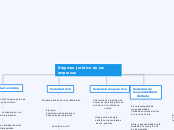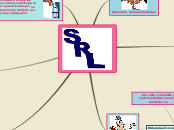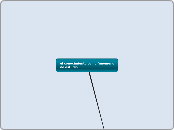clasificacion de las normas juridicas
The part of speech is a category to which a word is assigned according to its syntactic functions. In English the main parts of speech are noun, pronoun, adjective, determiner, verb, adverb, preposition, conjunction, and interjection.
religiosas
A preposition is one of the most exciting parts of grammar. A preposition is used to describe the location of something in relation to something else.
Heteronomía. Las reglas que enfrenta una persona provienen del medio externo,
Interioridad, llevan implícita la intención del individuo para cumplirlas
derivan de dogmas recibidos durante el estudio o practica de creencias divinas
Compound preposition consists of two or more words.
on behalf of, according to, in front of, from across, etc.
Topic principal
social
Exterioridad. Son externas porque regulan la conducta de las personas.
Heteronomía. Dichas normas son impuestas desde fuera de la conciencia y voluntad del individuo
Incoercibílidad. Las normas de etiqueta son incoercibles porque dependen para su cumplimento de la buena disposición
Unilateralidad. En relación con una norma de trato social la unilateralidad implica que frente al sujeto obligado no hay sujeto facultado.
morales
An interjection is used to express emotion in a sentence.
Think of other interjections!
Incoercibilídad. La observancia de dichas normas no es exigida por el Estado
Interioridad. Las normas con esta característica, llevan implícita la intención del individuo para cumplirlas, conforme a sus principios y sentimientos,
Unilateralidad. contemplación de la existencia de un sujeto facultado para exigir el cumplimiento de las obligaciones contenidas en esa norma al destinatario,
contemplación de la existencia
individualizadas
An adjective is a word that's used to describe a specific noun and to provide more detail to the listener.
obligan o facultan a uno o varios miembros
Expresses a comparison between two entities or groups of entities in quality or degree.
He is taller than she is.
genericas
A noun is defined as a person, place, thing or idea. Proper nouns always begin with a capital letter. Common nouns, which are general words, such as 'cars,' are not capitalized.
facultan al sujeto de disposición normativa
Countable nouns are nouns that can be counted, even if the number might be extraordinarily high.
Uncountable nouns are nouns that come in a state or quantity which is impossible to count; liquids are uncountable, as are things which act
like liquids.
Cats, Rain
obligan
Proper nouns are the names of specific people or places. They should always begin with a capital letter.
Mary, Paris
norma juridica
A verb is an action word or 'doing' word that signifies movement in some way.
cumplimiento obligatorio
An auxiliary verb helps the main (full) verb and is also called a 'helping verb.' With auxiliary verbs, you can write sentences in different tenses, moods, or voices.
You have been practicing hard.
creadas por el estado
A participle is a verb form that can be used as an adjective or to create a verb tense. There are two types of participles: Present participle (ending -ing) and Past participle (usually ending -ed, -d, -t, -en, or -n).
The winning athlete gets a trophy.
regulada por el hombre, sociedad
A modal is a type of auxiliary (helping) verb that is used to express: ability, possibility, permission or obligation. The main modal verbs in the English language are: can, could, may, might, must, shall, should, will, would.
Create sentences
I might go to the park if I get my homework done.
